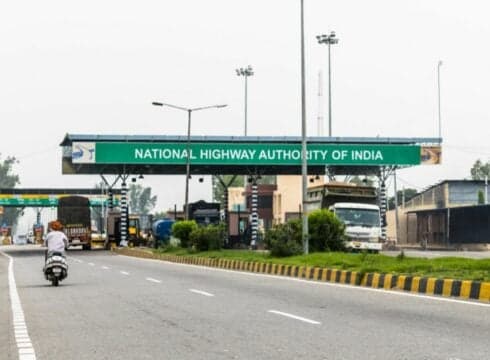This is planned over the next seven years to boost the adoption of e-mobility and deployment of e-buses
This initiative is envisioned as part of the proposed Vision 2030: PM Public Transport Sewa
The development of e-highways is expected to stimulate the growth of charging infrastructure, promoting the use of electric cars for daily commuting
Inc42 Daily Brief
Stay Ahead With Daily News & Analysis on India’s Tech & Startup Economy
The government is reportedly looking to build 6,000 KM of electric vehicle-ready highways on the Golden Quadrilateral in a bid to reduce fuel consumption and vehicular emissions via electrification of intercity public transport.
This is planned over the next seven years to boost the adoption of e-mobility and deployment of e-buses, ET reported.
The Golden Quadrilateral constitutes the longest national highway network in India, linking major industrial, agricultural and cultural centres. It forms a quadrilateral with Delhi (north), Kolkata (east), Mumbai (west) and Chennai (south) as the vertices.
This initiative is envisioned as part of the proposed Vision 2030: PM Public Transport Sewa. The development of e-highways is expected to stimulate the growth of charging infrastructure, promoting the use of electric cars for daily commuting.
To replace 800,000 diesel buses with electric ones over the next seven years, the government plans to deploy 2,00,000 electric buses for state transport undertakings (STUs), 5,50,000 for private operators, and 50,000 for schools and employee transportation by 2030. This aligns with the broader Faster Adoption and Manufacturing of (Hybrid and) Electric Vehicles in India (FAME) incentive program.
The electrification of highways will contribute to the expansion of charging infrastructure, encouraging more people to adopt electric cars for everyday travel.
In September 2022, the National Highway for Electric Vehicles (NHEV) initiated a technical trial run for electric vehicles on the Delhi-Jaipur Expressway as a component of the ease of doing business project.
Ashwini Kumar Choubey, Minister of Environment, Forests, and Climate Change in India, inaugurated the one-month technological trial run from India Gate in the capital city. The primary goal of this test drive is to assess the economic feasibility of the electric vehicle infrastructure along the 270 KM stretch between Delhi and Jaipur.
A notification dated December 21, 2022, also highlighted the absence of a specific policy for EV swapping stations on the Golden Quadrilateral Highway. Electric charging stations are to be provided by developers as part of the Wayside Amenities (WSAs). The National Highways Authority of India (NHAI) has already awarded 144 such facilities.
According to data released by the Federation of Automobile Dealers’ Association (FADA), electric vehicle sales in India surged by 49.25% year-on-year to 15,29,947 units in 2023. Several Indian EV startups, including Ather Energy, Altigreen, BluSmart, and Exponent Energy, are now offering sustainable mobility solutions. The Indian EV market, hosting both small and large startups, is projected to reach $15.3 Tn by 2027.
Recently, Ola Electric, poised for an IPO, became the first Indian electric two-wheeler (e2W) company eligible for the government’s production-linked incentive (PLI) scheme.
{{#name}}{{name}}{{/name}}{{^name}}-{{/name}}
{{#description}}{{description}}...{{/description}}{{^description}}-{{/description}}
Note: We at Inc42 take our ethics very seriously. More information about it can be found here.


